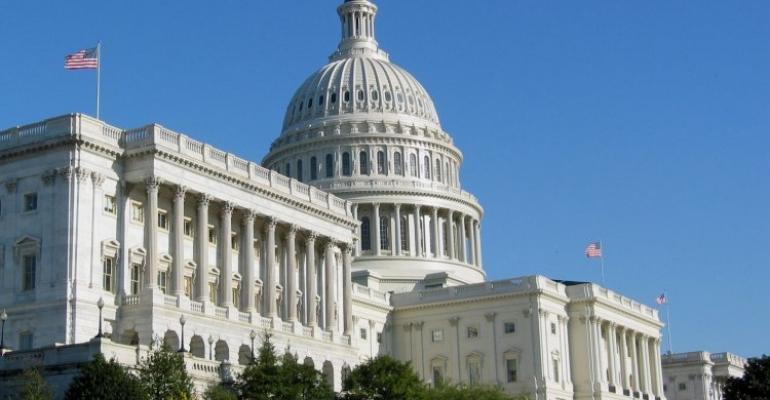Sen. Dan Sullivan managed to strike the proposal to tax a portion of cruise revenues based on the time passengers spend in US waters. The tax had been projected to cost cruise operators upwards of $70m annually.
A Sullivan spokesperson told NBC News the tax 'disproportionately impacted the Alaska economy and its workers, particularly in communities that rely on cruise ship tourism.'
A variety of cruise industry interests had lobbied against the tax, warning it could impact jobs at jobs at ports in states that, besides Alaska, include Hawaii, Washington, California, Texas, Louisiana, Alabama, Florida, Virginia, Maryland, New Jersey, New York, Massachusetts, Maine and the Great Lakes.
While it's good news for cruise lines—and, presumably, cruise port communities—some elements of the nearly 500-page bill concern the Association of American Port Authorities. Both the Senate legislation and a House of Representatives version approved Nov. 16 contain provisions that would 'reduce or curtail much-needed tax support for investments in America’s infrastructure, including seaports,' AAPA said.
The ports association is particularly concerned over several provisions in the House bill. Provisions to eliminate tax-exempt status for Private Activity Bonds and repeal the tax exemption for advanced refunding of bonds would 'seriously impair' two important tools used to fund US port infrastructure, a high priority for AAPA. The Senate bill also includes repealing the tax exemption for advanced refunding of bonds, affecting the ability of issuers to refinance those bonds at lower rates.
According to AAPA, approximately 27% of the $451bn in long-term, tax-exempt US municipal bonds were advance-refunded in 2016 to take advantage of lower rates.
The House version of the bill also includes rolling back wind energy Production Tax Credits, which would negatively impact investments in US wind energy projects and could threaten US port jobs. AAPA noted that as wind energy continues to gain traction in the US as a supplement to coal and gas, components of the giant wind turbines used to generate electricity, including the generators, nacelles and blades, move through America’s ports and help sustain port-related employment.
In a statement AAPA president and CEO Kurt Nagle thanked the Senate for deleting the cruise tax provision, which he said 'would have hindered American economic growth and jobs.'
But Nagle added the association 'supports maintaining the historic system of tax-exempt bonds and encourages these bonds to also be permanently exempt from the Alternative Minimum Tax.' He said AAPA also 'opposes any rollback and supports a permanent extension of the existing wind energy Production Tax Credit, which is set to expire in 2019.'
The Port of Los Angeles, for example, estimates its costs would increase $30m over 30 years if it couldn’t use tax-exempt Private Activity Bonds, while the proposed changes to advanced refunding would cost $28.17m over the same time horizon. This is funding that would otherwise be reinvested into the port complex, AAPA said.
Meanwhile, the provision to roll back the wind energy Production Tax Credit to its 1992 level of $15 per megawatt hour, down from the current inflation-adjusted $24 per megawatt hour, would impact AAPA member ports that are part of the transportation supply chain for wind energy projects. Those include New Orleans, Galveston, Corpus Christi, Baltimore, Norfolk and San Diego, among others.
Copyright © 2024. All rights reserved. Seatrade, a trading name of Informa Markets (UK) Limited. Add Seatrade Cruise News to your Google News feed.


